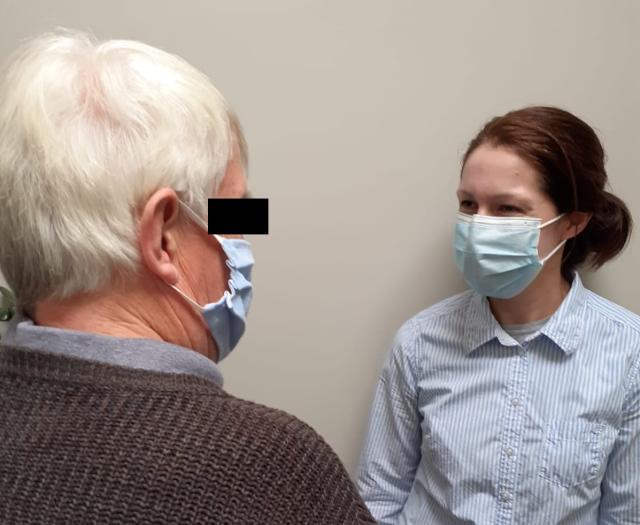
Research into pathway for older people with vision impairment to navigate support and services
18 September
A Welsh study, funded by Health and Care Research Wales in collaboration with Cardiff University, is exploring how to improve lives of people living with vision impairment.
Around 1.5 million people in the UK, over the age of 65 are living with vision impairment according to Age UK. In 2020, over 1,000 older people in Wales were formally registered as sight impaired or severely sight impaired.
Vision impairment is one of the most common disabling conditions in older people that affects their everyday lives, including relationships and social connections.
Dr Jennifer Acton, Senior Lecturer of School of Optometry and Vision Sciences at Cardiff University, said the problem for many older people with vision impairment was in finding and accessing the right type of support.
The study will involve a review of the current provision of care and support, and make recommendations about how existing resources might be joined up for more efficient use. Dr Acton still needs to hear from individuals over 60 with vision impairment to understand the challenges and support they need, as well as staff involved in the delivery of services for older people with vision impairment.
If you are interested in taking part in the research, please get in touch with Dr Jennifer Acton at actonj@cardiff.ac.uk, or leave a message at 02920 870203 to take part in a survey or an interview.
She said: “Before the start of our project, we talked to some older people with sight loss who needed to make modifications to their lifestyle and maintain their independence. However, the national databases and resources are not always joined up or regularly maintained - there's no clear pathway for these vulnerable people to navigate.”
“There was one older man who said that when he was first diagnosed, he went into the waiting room and was overwhelmed with a large number of leaflets, and that he wondered what he was going to do next. Learning about the difficulties of these individuals really inspired us. Although there are professionals who support these situations like eye clinic liaison officers, we know there are still too few of them.”
Dr Acton said that others, including professional care teams, also found it difficult to keep up to date with changes to access as voluntary sector and social services were evolving.
“We heard from a low vision optometrist who had a patient seeking help with lighting. The optometrist had to spend half an hour during lunch to phone around and find out the right contact number to direct the individual to.
It is not only older people who have problems keeping themselves updated with services - even some healthcare professionals are not linked up.
“It's really important for us to hear from different people who are affected, including those hard-to-reach groups who are house-bound with severe mobility issues or learning disabilities. Healthcare professionals and carers are playing a big role as well. We want to get the perspectives of these individuals for a balanced view.”
Dr Acton concluded:
We will bring together feedback and study findings so that we can present these to policymakers and health and social care leaders. Ultimately, we hope that the project will form an evidence base for a system that is fit for the future.”
To keep up with the latest updates in research in Wales, sign up for our weekly bulletin.
Read more about the impact of the internationally leading research at the School of Optometry and Vision Sciences at Cardiff University.